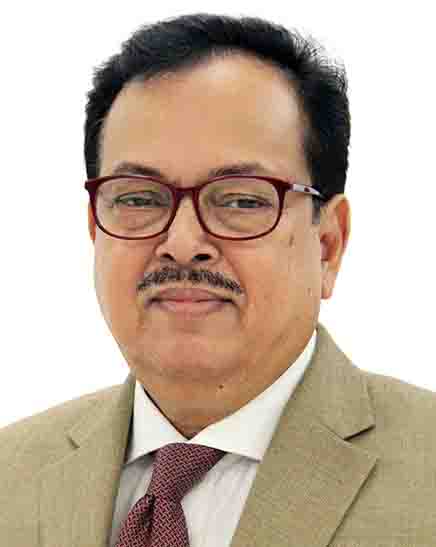Victory Day embedded in our soul

Victory is great, greater is its pride. In other words, achieving victory is difficult, but making it sustainable is more difficult. Sixteenth December is the Victory Day Bangladeshis celebrate every year be at home or abroad. It is a red letter day for the people of Bangladesh, worthy to be commemorated with due honour and solemnity. This auspicious day will continue to be observed as the National Victory Day so long as the Bangladesh itself will continue to exist. After the nine-month long war of liberation the people of Bangladesh defeated the world’s strongest army and snatched victory when on 16 December, 1971 the Pakistani Army was compelled to surrender to our valiant freedom fighters at the historic Race course field from where Bangabandhu Sheikh Mujibur Rahman, the founding father of Bangladesh gave the clarion call to the nation and asked them to fight until victory is achieved. The people of Bangladesh, who were being suppressed and oppressed by the Pakistani Military rulers, took that call as a directive and they fought a fierce war to make Bangladesh an independent nation. In fact, the glorious moment of independence of Bangladesh did not come just in a day. It took lives, blood and valuable time. There had been a long history of struggle of the mass people led by their leader Bangabandhu Sheikh Mujibur Rahman. He could read the pulse of the oppressed people and could understand the real demand and basic need of his people. After decades of struggles for the cause of the common people Sheikh Mujibur Rahman, the champion of Bengalee nationalism, got the nation ready to inflict a final blow to the Pakistani military rulers. According to the plan Sheikh Mujib started scaling up the struggle and in an opportune moment he put forward the historic charter of demand known as the Sixth Point on behalf of the nation. With that demand the country was united under the leadership of Bangabandhu Sheikh Mujibur Rahman and finding no other alternative Ayub Khan was compelled to resign. General Yahiya khan took over the power of Pakistan and a general election was held in 1970. In that election the Awami League led by Sheikh Mujib got the absolute majority to form the government in Pakistan. But the military rulers in connivance with Zulfikar Ali Bhutto, leader of the Pakistan People’s Party, resorted to deep-rooted conspiracy against the people of Bangladesh the then East Pakistan). They cracked down upon the unarmed and innocent people of Bangladesh in the name of Operation Search Light. Pakistani military indiscriminately killed millions of people in nine months and this came to be regarded as the worst possible Genocide ever committed on humans in this world. Responding to that brutal mass killing, our valiant freedom fighters took up arms and after nine-month long guerrilla warfare finally fought a decisive war. After the 13-day war the Pakistani army was defeated and we got our long-cherished victory.
As the valiant commander of the 24-year long struggle the name of the greatest Bengali of thousand years the Father of the Nation Bangabandhu Sheikh Mujibur Rahman would always shine like a bright star.
Bangabandhu means Bangladesh. Bangabandhu means freedom. Bangabandhu means our new entity. His existence belongs to every inch of the 55 thousand square miles of the land.
The victory came only after the bloody liberation war against the Pakistani army that wanted all the houses, bridges and the installations including schools, colleges and universities raged to the ground. They did it. Pakistani army killed millions of people of this land including old men, women and children thinking that we would bow down and become their subjects. But their evil dream never came true. They were defeated and we achieved victory. We are proud of our victory. But this pride has taken a huge price. More than three million innocent people had to sacrifice their lives for this victory. Unprecedented sorrow and pain marked the victory of the Liberation war of Bangladesh. It was a war, which established the sovereign nation called Bangladesh. The war was one of the most violent wars of the 20th century, it witnessed large-scale atrocities, the exodus of 10 million refugees and the killing of 3 million people.
On 16 December 1971 Lieutenant General Niazi of Pakistan Armed Forces located in East Pakistan signed the Instrument of Surrender, a written agreement that enabled the surrender of the Pakistan Eastern Command in the Bangladesh Liberation War, and marked the end of the Indo-Pakistani War of 1971. While Jagjit Singh Aurora, Joint Commander of Indian and Bangladesh Forces, signed the instrument amid thousands of cheering crowds at the race course. Air Commodore A. K. Khandker, Deputy Commander-in-Chief of the Bangladesh Armed Forces, and Lieutenant General J F R Jacob of the Indian Eastern Command, acted as witnesses to the surrender. The surrender
took place at the Ramna Race Course in Dhaka on December 16, 1971.
On behalf of Bangladesh, Air Commodore A. K. Khandker acted as witness to the surrender. Lieutenant General Jacob Rafael Jacob, Chief of Staff of the Indian Eastern Command, along with the other commanders of Indian naval and air forces, acted as witnesses on behalf of India. Aurora accepted the surrender while the crowd on the race course started shouting with joy.
Sharif Shahab Uddin is
Editor-in-Chief,
Bangladesh Post



